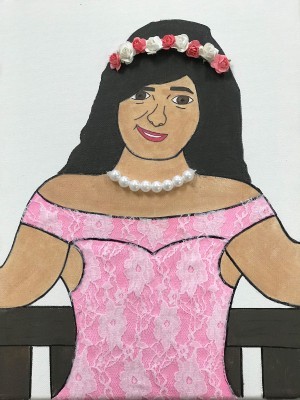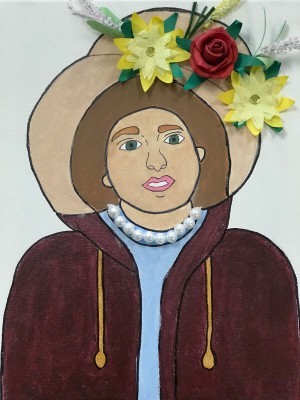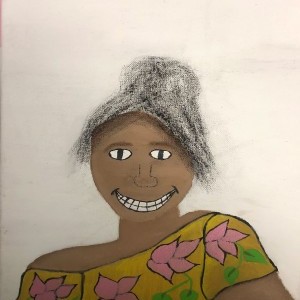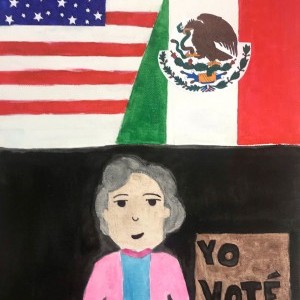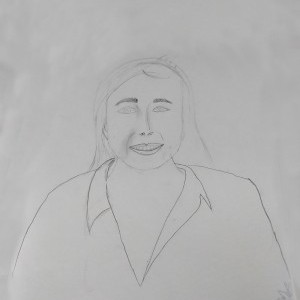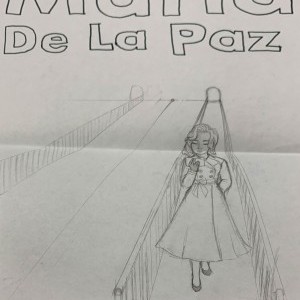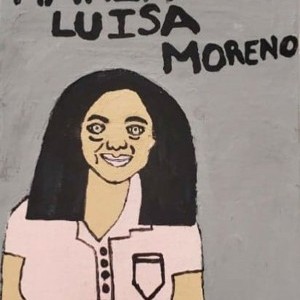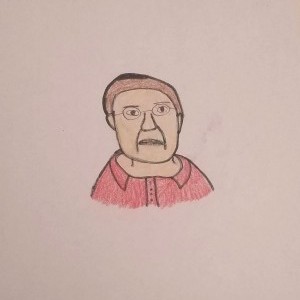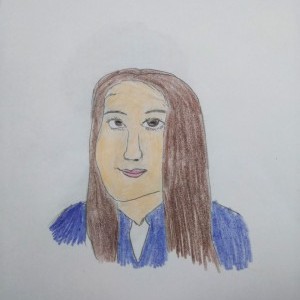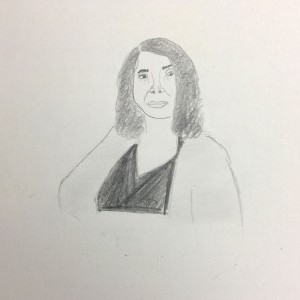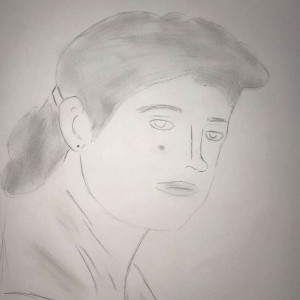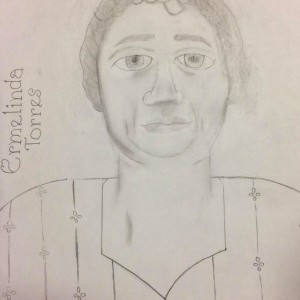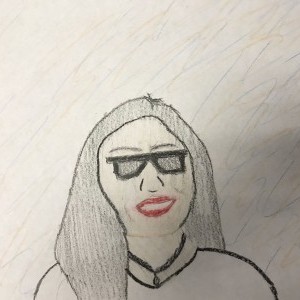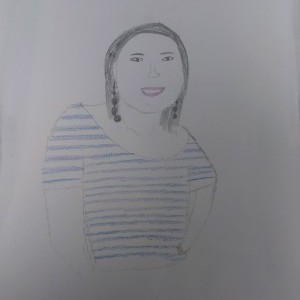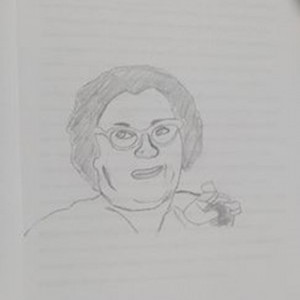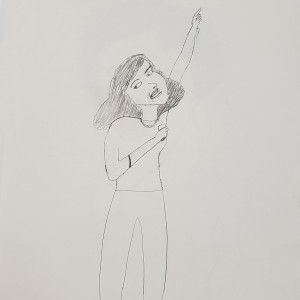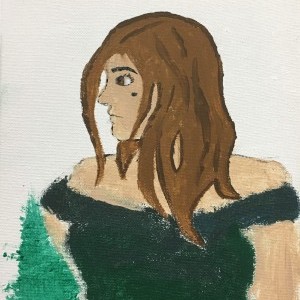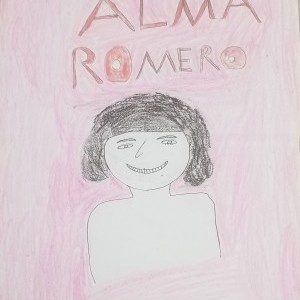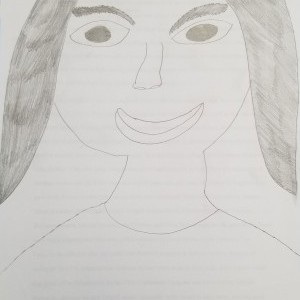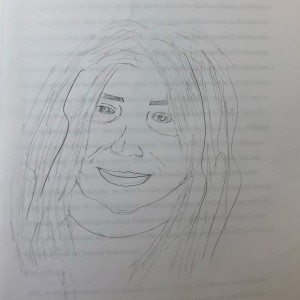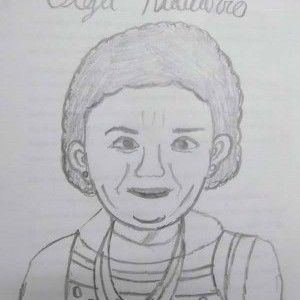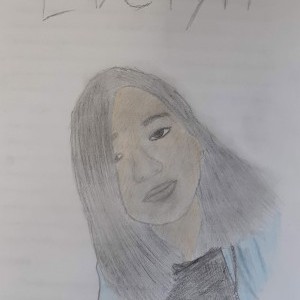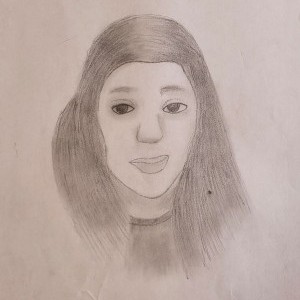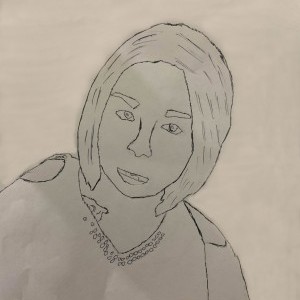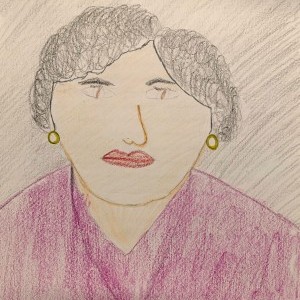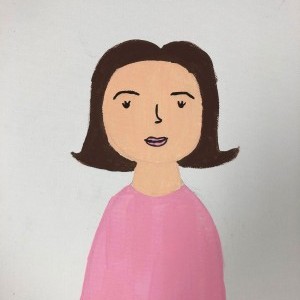Joanna Garcia
García Early College High School | Laredo, TX | 10th Grade
Inspirational Family Member
My Sister Ana
Before the 1920’s, women weren’t allowed to be equal to men nor were they allowed to vote. They were just expected to be submissive to their husband and do the house work. My parents migrated from Mexico in order to provide a better life to their children. Since my mother is the first member of her family that has come into the United States, she doesn’t have the right to vote. My mother is currently a resident of the United States while my father has recently become a citizen. Being the first female in my family to be born in the United States, my sister, Ana Garcia, was granted the right to vote and have her voice heard.
Ana Garcia was born on March 3, 1995 in Laredo, Texas. She is the second born child of Ramira Garcia and Jose Garcia. Like many other Americans, Ana was granted freedom of speech, free education, the right to vote, etc. In many other places, people don’t always have these rights and are just supposed to do what someone with authority tells them to do. Ana graduated from Cigarroa High School and decided to follow her dream in becoming a cosmetologist. Ana was allowed to vote in 2013 at the age of 18 just after graduating high school; although there wasn’t a presidential campaign in 2013. The most recent presidential campaign during that time was in 2012 which was for the second term of President Barack Obama. During the 2012 presidential campaign, Ana wasn’t able to vote due to only being 17 years old. It wasn’t until 2016 when Ana was able vote for the upcoming president, but she decided not to vote.
A campaign that Ana was a part of was in the city council elections. This election is done every four years just like a presidential election. The latest city election occurred in 2018 but Ana voted in 2014. Since then she has not voted in a campaign of any kind. While talking to her, Ana mentioned how just the idea of having the right to vote is the thing that is important to her and to many other women. Since my sister is the first female allowed to vote in the United States, it means that previous female family members weren’t allowed to vote because they’re U.S. residents or they were denied the right to vote.
Historical Figure I Admire
Christabel Pankhurst
Like many women before her, Christabel Pankhurst was expected to be a married woman who had to obey her husband and had no say in political events. She was part, along with her sister Sylvia Pankhurst, of the Women’s Social and Political Union (WSPU) which was founded in 1903 by their mother, Emmeline Pankhurst. The Women’s Social and Political Union was an all-women organization, run mainly by Christabel, that protested for women’s right to vote. This Union was known for protesting, doing strikes, and destroying property for them to be heard. She was known as the ‘Queen of the Mob’ due to her cleverness and outspoken mind. Christabel was a very bright women who fought for what she believed in.
Christabel Pankhurst was born on September 22,1880 in Manchester, England. Her parents were Dr. Richard Pankhurst and Emmeline Pankhurst. Her father chose the name “Christabel” due to inspiration from a poem. Dr. Pankhurst believed a child’s beauty is based on their name which is why he chose to name her that. She was the first born of five, this including Sylvia, Henry Francis Robert, Adela, and Henry Francis. Christabel along with her siblings learned about equal rights since they were small. Her parents were interested in women’s suffrage and their difficulties. This insight in women’s suffrage is what most likely led Christabel into her devotion to WSPU. Christabel studied to be a lawyer during her college years. She then taught one of her important topics in Durham District. This led to her realization that the WSPU wasn’t as successful as she had hoped.
On October 1905, Christabel was arrested for interloping a liberal party meeting. In this meeting Christabel and her partner, Annie Kenney, were planning to talk about women’s right to vote. Although, this didn’t go as planned; in result they got arrested. This caught the attention of many people including the media and more women. It has been said that this arrest was planned for the colleagues to bring attention to women’s suffrage. While being in prison, they would hold strikes such as refusing to pay fines and refusing to eat. After they got free from prison, Christabel thought it was a good ideal to spread the WSPU to London. She could only stay in London for a limited amount of time, but Annie would be able to stay longer. Annie managed to get more women involved during the time she was there. Some of these women were willing to get themselves into prison in order to get the word out of WSPU. In 1906, the first protest march was done at the Caxton Hall in London. Over 400 women attended which was a huge success, Christabel later moved to France after an incident happened and she would be going to jail for a long period of time. There she still managed to work by having meetings, gathering people and attending political parties. Christabel got arrested multiple times while in charge of WSPU. This didn’t stop her goal which was to allow women to vote.
In 1918, all of Christabel’s hard work had partially paid off. Women were given the half right to vote. But, during those years of fighting for only the partial right of a woman, those women were treated horribly. Police would often break up the protests and marches in which they separated the women in many directions and arrested them. While in the process of being arrested, the police would bend their arms back until almost broken and would sometimes bend their thumbs until they broke. This type of treatment to these women, including Christabel, is brutal. In 1928, ten years after getting half the right to vote, women were finally being treated equal as man and were given the right to vote. Sadly, the founder of WSPU, Christabel’s mother Emmeline, wasn’t able to witness that. After going through all of that, Christabel was finally able to vote.
Many people thought of Christabel as the leader of the pack. However, she was just doing what she believed was right and did anything necessary in order to succeed. At first, the people of England would often think of her as just another person who tried to make things equal. This all changed when they noticed that Christabel had a chance to change everything. Of course, there were some people who believed that a woman couldn’t make a change in the world especially in politics. This didn’t stop Christabel because she didn’t care about being known or famous. What she cared about was getting the word out that women should be equal to men not inferior to them. Christabel died on February 13, 1958 at the age of 77. Her legacy stayed behind and now she is known as the individual that gave the freedom to vote to women.
SOURCES +
What the Project Means to Me
This research on the first female voter in my family has made me come to a realization that I am lucky enough to be granted the right to vote. If I were to be living in another time, like in the 1800’s, this right in particular wouldn’t be given to me but only to men. It shouldn’t matter how small or big a campaign is but the privilege that a woman gets to decide if they should vote or not. One would think of voting as not only being part of a big decision but being involved on that decision without anyone else influencing the conclusion. If every woman today wouldn’t be allowed to vote and be involved in politics, elections and the results would be so different.
With Ana being allowed to vote due to being born in the United States, she is making history in my family. After many generations, Ana was given the privilege to vote in America. My mother, grandmother, and aunts aren’t allowed to vote in the United States, but they are allowed to vote in Mexico. By voting, many women get their voices heard and they get to decide decisions that they believe are right instead of everything being chosen for them. Every woman should be granted the right to vote. They should decide whether they want to vote instead of being told that they can’t vote. Just like my sister, many other women decide not to be involved in politics and don’t vote. This shouldn’t change the fact that many other women want to be given the chance to vote and not just be seen as inferior to men.
It shouldn’t matter whether women take their opportunity in voting but just the fact that they have the opportunity to vote. Ana may have only taken that opportunity once since having the right to vote but it doesn’t mean she won’t vote later on. Many generations from now, my family will know who the first female to vote was and that was my sister Ana Garcia.
Explore the Archive
More From This Class
Click on the thumbnails below to view each student's work.Deadline Extended
There's still time to join Women Leading the Way.
Become a part of our storytelling archive. Enroll your class today.
Join the Project

